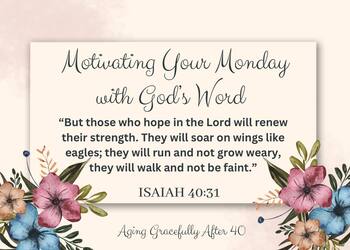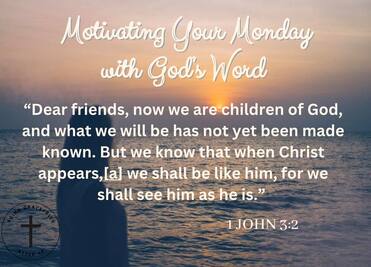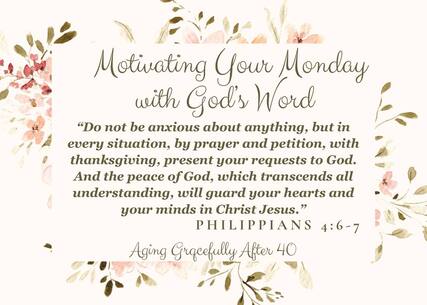|
In the heart of Paul's letter to the Ephesians lies a verse that encapsulates the transformative power of Christian conduct: "Be kind to one another, tenderhearted, forgiving one another, as God in Christ forgave you." Ephesians 4:32 is not merely a suggestion; it is a call to embody the grace we have received through Christ in our daily interactions with others.
Kindness is a simple word, yet it holds profound implications for how we live our lives. It is an active choice, a deliberate action that we take to improve someone else's day, to lighten their burden, or to simply acknowledge their humanity. It is a quality that does not depend on the worthiness of its recipient but is given freely and generously, just as God has done for us. Being tenderhearted goes beyond superficial niceties. It requires us to be vulnerable, to allow ourselves to feel empathy and compassion for others. It is in this softness of heart that we find the strength to connect with others on a deeper level, to see beyond our differences, and to recognize the shared human experience that binds us all. Forgiveness is perhaps the most challenging aspect of this verse. To forgive as Christ forgave us means to let go of grudges and bitterness, to release the desire for retribution, and to make peace with the past. Forgiveness does not condone wrongdoing, but it frees us from the toxic cycle of anger and resentment. It is a gift we give to ourselves as much as to the one who wronged us. Living out Ephesians 4:32 is a daily practice, a conscious decision to reflect God's love in our words and actions. It means choosing kindness when we are tempted to be harsh, offering a gentle word when we could be critical, and extending forgiveness when we would rather hold onto our hurt. It is a commitment to being agents of God's grace in a world that often seems devoid of it. As we strive to be kind, tenderhearted, and forgiving, we become beacons of light in the lives of those around us. We contribute to a culture of grace that can heal divisions and build bridges of understanding. Our actions, inspired by the love we have received, can have a ripple effect, encouraging others to also live out these values. In a world that can be harsh and unforgiving, Ephesians 4:32 offers a different way—a way of gentleness, compassion, and grace. It challenges us to rise above our instincts for self-preservation and retaliation, to become vessels of the same unconditional love that we have been shown through Christ. As we reflect on this powerful verse, let us commit to putting it into practice, not just in grand gestures, but in the small, everyday moments that make up the fabric of our lives. Let us be kind to one another, tenderhearted, forgiving one another, just as God in Christ forgave us. For in doing so, we not only honor God, but we also create a little more heaven on earth. Closing Quote: "Let kindness be the melody of your heart, tenderheartedness the harmony of your soul, and forgiveness the chorus that echoes the grace of Christ within you." Until next time, stay blessed, stay positive, and keep being a shining light for God!
0 Comments
In a society that often places a premium on external appearances, Proverbs 31:30 offers a refreshing and countercultural perspective: "Charm is deceptive, and beauty is fleeting; but a woman who fears the Lord is to be praised." This verse is a beacon of truth, guiding us to understand the impermanence of physical allure and the enduring value of spiritual reverence.
The Proverbs 31 woman is an archetype of virtue and strength, celebrated not for her temporal attributes but for her enduring fear of the Lord. The term "fear" in this context is not about being afraid but rather about having a profound respect and awe for the Creator. It is this deep-seated reverence that shapes her character and actions, making her worthy of praise and admiration. Charm and beauty, while not inherently negative, are described as deceptive and fleeting to highlight their transient nature. They can be alluring, but they do not last. The wisdom of Proverbs 31:30 encourages us to look beyond the surface and to value the qualities that withstand the test of time. A woman who fears the Lord exhibits qualities such as kindness, wisdom, and integrity. These traits emanate from her faith and are reflected in her interactions with others. She is a nurturer, a provider, a counselor, and a role model. Her worth is not measured by the standards of the world but by the impact of her faith-filled life on those around her. The verse also speaks to the broader theme of inner beauty. It challenges both men and women to cultivate a heart that honors God, knowing that this is the source of true beauty. It is a call to prioritize the development of our spiritual lives, understanding that our relationship with the Lord is what truly defines us. In a culture that often equates value with physical attractiveness, Proverbs 31:30 stands as a timeless reminder of the greater worth found in godliness. It is a call to recognize and celebrate the beauty of a life lived in devotion to God—a beauty that does not diminish with age but grows more radiant with the passing of time. As we reflect on this verse, let us strive to embody the qualities that are truly praiseworthy. Let us nurture our relationship with the Lord, allowing it to shape us into individuals of substance and depth. And let us remember that while the world may focus on the external, it is the internal—the heart that fears the Lord—that is truly deserving of honor and praise. Until next time, stay blessed, stay positive, and keep being a shining light for God! In a world that often feels fragmented and isolated, the words of Hebrews 10:24-25 resonate with a call to community and encouragement: "And let us consider how we may spur one another on toward love and good deeds, not giving up meeting together, as some are in the habit of doing, but encouraging one another—and all the more as you see the Day approaching."
This passage is a powerful reminder of the importance of fellowship and mutual support among believers. It's not just an invitation; it's an exhortation to actively think about and seek ways to inspire each other to live out love and good deeds. The imagery of spurring one another on suggests a gentle, yet firm, prompting towards growth and action—a nudge to remind us of our purpose and potential in Christ. The instruction to not give up meeting together is particularly poignant in today's context, where it's easy to become disconnected physically and spiritually. Gathering as a community of faith is not merely a routine; it's a lifeline that sustains and enriches our spiritual journey. These meetings—whether in person, online, or in spirit—serve as a crucible for transformation, where we can share our burdens, celebrate our victories, and strengthen our resolve to follow Jesus. Encouragement is the heartbeat of this scripture. It's a call to be the voice that uplifts, the hand that steadies, and the presence that comforts. As we draw nearer to the Day of the Lord's return, the need for encouragement becomes even more critical. It's a reminder that we are not lone travelers on this path of faith but part of a larger body, each member significant and essential. In practical terms, living out Hebrews 10:24-25 means being intentional in our relationships. It's about creating spaces where conversations about faith can flourish, where accountability is welcomed, and where grace abounds. It's about recognizing the divine in each other and calling it forth through our words and actions. As we consider how to apply this passage to our lives, let's ask ourselves: How can we be a source of encouragement today? Who in our circle needs a word of hope, a gesture of kindness, or a reminder of their worth in Christ? How can we make our gatherings—big or small—a place where love and good deeds are not just discussed but demonstrated? In embracing the message of Hebrews 10:24-25, we become active participants in God's redemptive work, fostering a community that reflects His love and shines His light into the world. Let us not underestimate the power of coming together, for in unity, we find strength, and in encouragement, we discover the joy of serving the Lord side by side. Until next time, stay blessed, stay positive, and keep being a shining light for God! In the tapestry of life, we all encounter moments of heartache and pain. It's during these times that we seek solace and healing, a gentle touch to mend the fractures within our spirit. Psalm 147:3 offers a profound source of comfort, stating, "He heals the brokenhearted and binds up their wounds." This verse is a testament to the tender care of the Lord, a reminder that in His hands, restoration is not only possible but promised.
The imagery of God as a healer is deeply rooted in the understanding that He is intimately aware of our sufferings. The brokenhearted are not left to navigate their sorrow alone; they are cradled by a compassionate Creator who sees every tear and understands every silent cry for help. The act of binding up wounds goes beyond mere physical healing—it speaks to the emotional and spiritual renewal that God provides. When we reflect on the nature of our wounds, we recognize that they come in many forms: the loss of a loved one, the end of a relationship, the sting of betrayal, or the collapse of a dream. These experiences can leave us feeling shattered, questioning our ability to move forward. Yet, Psalm 147:3 reassures us that our brokenness does not go unnoticed by the Lord. He is close to the downtrodden, offering His love as a balm to soothe the deepest of hurts. The process of healing is often gradual, a journey that unfolds in the quiet moments of surrender to God's will. It is in the stillness that we can hear His whisper, a gentle reminder that we are not defined by our brokenness but by His ability to make us whole again. As we allow Him to bind up our wounds, we find that our scars become symbols of His grace, each one a story of resilience and hope. Additionally, the healing that comes from God is not just for our benefit. As we experience His restoration, we are equipped to extend the same compassion to others. Our testimonies become beacons of light to those who are navigating their own valleys of despair. We can stand alongside them, sharing the truth that the same God who heals our broken hearts is ready to heal theirs. In closing, let us hold fast to the promise of Psalm 147:3. May we find peace in knowing that our broken hearts are tenderly cared for by a loving God. And as we journey through life's challenges, let us remember that with each wound bound up by His hands, we are being woven into a beautiful story of redemption and grace. Embrace the healing, cherish the journey, and trust in the One who restores – for He is the mender of broken hearts and the healer of our souls. Until next time, stay blessed, stay positive, and keep being a shining light for God! Life often presents us with challenges that test our endurance and faith. In these times, we may find ourselves searching for a source of unwavering strength to carry us through. The scripture Isaiah 40:31 offers a profound promise to those who place their hope in the Lord: "But those who hope in the Lord will renew their strength. They will soar on wings like eagles; they will run and not grow weary, they will walk and not be faint."
This verse is a powerful reminder that our strength does not come from within ourselves, but from our reliance on God. It speaks to the transformative power of faith and the rejuvenation that awaits those who trust in the Lord's providence. To "soar on wings like eagles" is to experience a spiritual renewal that lifts us above our circumstances, granting us the ability to see life's obstacles from a higher vantage point. Eagles are renowned for their resilience and their capacity to glide effortlessly at high altitudes, even in the face of strong winds. Similarly, when we anchor our hope in God, we gain access to a divine strength that enables us to navigate the headwinds of life with grace and fortitude. This strength is not a temporary fix; it is an enduring promise that empowers us to run the race set before us without succumbing to weariness. The imagery of running and not growing weary, walking and not fainting, speaks to the perseverance and steadfastness that characterize a life lived in reliance on God. It is a life marked not by the absence of challenges, but by the presence of an unshakeable confidence that we are not alone in facing them. Our hope in the Lord is the wellspring from which our strength flows, renewing us day by day. Isaiah 40:31 also encourages us to adopt a posture of expectancy, looking forward to the renewal that comes with each new day. It is a call to remain steadfast in our faith, knowing that our hope is not in vain. As we wait on the Lord, we can be assured that He will renew our strength, allowing us to rise above the fray and embrace the journey ahead with courage and peace. In conclusion, the message of Isaiah 40:31 is one of hope and renewal. It assures us that when we place our trust in the Lord, we will find the strength to overcome adversity and the resilience to continue moving forward. Let us hold fast to this promise, allowing it to guide us as we soar on wings like eagles, run without weariness, and walk without faltering on our path through life. Until next Monday, stay blessed, stay positive, and keep being a shining light for God! In life's relentless pursuit for more, Scripture calls us to contentment. Paul embraced contentment in all situations (Philippians 4:11), and Hebrews urges satisfaction with our lot, assured by God's presence (Hebrews 13:5). We'll explore life's lessons on contentment, practical steps to foster it, and a personal story of peace found in God amid trials. Join me on this journey to embrace the peace of a life grounded in divine love.
Understanding Contentment Through Scripture Contentment is a state of the heart that we're all striving to achieve, and Scripture provides profound guidance on this journey. Two verses stand out in their wisdom on contentment: Philippians 4:11 and Hebrews 13:5. In Philippians 4:11, Paul shares a personal revelation, "I have learned to be content whatever the circumstances." This powerful statement comes from a man who experienced both abundance and need. Paul's secret to contentment wasn't found in his surroundings or possessions, but in his relationship with Christ. He understood that contentment is a learned behavior, a conscious choice to rest in God's plan and provision. Hebrews 13:5 offers a complementary perspective, reminding us to "Keep your lives free from the love of money and be content with what you have, because God has said, 'Never will I leave you; never will I forsake you.'" This verse calls us to detach from materialism and trust in God's unwavering presence and support. Together, these verses teach us that contentment isn't about our external circumstances, but about our internal posture towards life. It's about trusting in God's faithfulness and finding peace in His promises, knowing that He is with us in every season of life. The Role of Life Experiences in Shaping Our Contentment Life experiences, whether joyful or challenging, play a crucial role in shaping our sense of contentment. Every life event, from the mundane to the monumental, is an opportunity for growth. The trials we endure can teach us resilience and the value of what endures, while our triumphs can remind us of the sweetness of success and the importance of gratitude. It's through these varied experiences that we learn to savor the present moment and cultivate a sense of satisfaction with our lives as they are, not as we think they should be. Contentment doesn't mean complacency; rather, it's about finding a balance. It's about embracing life's ups and downs with grace and recognizing that our reactions to these events are often more important than the events themselves. By acknowledging and accepting our life experiences, we can find peace and develop a deeper sense of contentment that is not easily shaken by external circumstances. Ultimately, the role of life experiences in shaping our contentment is about perspective. It's about choosing to see every situation as a chance to learn and grow, to deepen our faith, and to align our hearts with a sense of purpose and peace that transcends the material world. Practical Ways to Practice Contentment Daily Incorporating contentment into our daily lives is a practice that can lead to profound peace and happiness. Here are practical ways to nurture contentment every day: 1. Gratitude Journaling: Start or end your day by writing down three things you're grateful for. This simple act shifts your focus from what's lacking to the abundance that's already present in your life. 2. Mindfulness: Take moments throughout your day to be fully present. Whether it's savoring your morning coffee or feeling the sun on your face, mindfulness roots you in the now, where contentment lives. 3. Simplify: Reduce clutter, be it physical, digital, or mental. By simplifying your life, you reduce the noise that distracts from contentment. Ask yourself what truly matters and let go of the rest. 4. Acts of Kindness: Doing something kind for someone else can boost your mood and create a sense of fulfillment. It's a reminder that joy often comes from giving rather than receiving. 5. Set Realistic Expectations: Understand that life is imperfect. By setting realistic expectations, you're less likely to be disappointed and more likely to appreciate what you have. 6. Connect with Faith: Spend time in prayer or meditation, connecting with your spirituality. This can provide a sense of purpose and place your worries in a larger context. By integrating these practices into your routine, you can cultivate a heart of contentment that endures regardless of life's ebb and flow. My Story of Contentment in Adversity David and I have encountered our fair share of life's hurdles, and there's a particular story of adversity I'd like to share from our time in Texas. As a contract paralegal, I had been deeply committed to a firm for five wonderful years. The allure of the Pacific Northwest, with its enchanting beauty and the promise of four distinct seasons, something we sorely missed in Texas, called to us. We decided in January 2010 to make the big move to Washington state later that year. Despite David's hesitation, I couldn't contain my excitement about our upcoming move and shared the news with my colleagues, not anticipating any repercussions. To my surprise, the firm quickly found my replacement—a previous employee who had just returned to town and was seeking work. By April, much earlier than our planned departure in August, I was out of a job. The economy was in a downturn and finding new contract work proved to be a challenge. Yet, this setback was a hidden blessing. It nudged us to leave Texas ahead of schedule, and we were able to get settled in Washington before the cold set in. And as if by divine arrangement, I landed the perfect job just two weeks after our arrival. This experience, like many others for both David and me, seemed to turn our world upside down at the moment but ultimately revealed itself as a blessing in disguise. Trusting in God's guidance brought us peace and contentment amidst the chaos. The Peace That Comes from Contentment in the Lord The peace that flows from contentment in the Lord is a sanctuary for the soul, a place where calm and assurance reign despite the chaos of the world. Contentment in the Lord is akin to a wellspring of peace that never runs dry. It's the understanding that our lives are cradled in the hands of the Almighty, and with that comes a release from the grip of worry and strife. This peace is not a passive resignation but an active trust that God's wisdom surpasses our own and that His timing is impeccable. When our contentment is rooted in the Lord, we experience a peace that is both profound and pervasive. It's a peace that steadies our hearts when the winds of uncertainty blow. It's the peace that Paul speaks of in Philippians 4:7, "And the peace of God, which transcends all understanding, will guard your hearts and your minds in Christ Jesus." This divine peace is a testament to a life lived in harmony with God's will. It's a peace that doesn't just endure; it triumphs over turmoil. It's a peace that whispers to our weary spirits, "Be still and know that I am God" (Psalm 46:10). As we journey through life, may we seek and find this unshakeable peace that comes only from contentment in the Lord. In conclusion, contentment is a journey, not a destination. It's a daily practice of gratitude, trust, and surrender to the Lord's will. Through my story shared and the practical steps outlined, we've seen how contentment can transform adversity into a path of peace. As we continue to seek contentment in the Lord, let us remember that it is His peace that sustains us, a peace that surpasses all understanding. May we carry this peace in our hearts, letting it spill over into every aspect of our lives, and may we always find harmony in life, melody in heart, and rhythm in our adventures with the Lord. Until next time, stay blessed, stay positive, and keep being a shining light for God! "Transformation: The Journey of Beholding the Lord's Glory"
In the hustle and bustle of our daily lives, we often seek transformation through various methods and achievements. We set goals, chase dreams, and outline step-by-step plans to become better versions of ourselves. Yet, in the pursuit of personal growth, we sometimes overlook the profound spiritual truth that true transformation comes not by our own efforts but by beholding the Lord's glory. This concept is beautifully encapsulated in the scripture 1 John 3:2, which states, "Dear friends, now we are children of God, and what we will be has not yet been made known. But we know that when Christ appears, we shall be like him, for we shall see him as he is." The Essence of Transformation Transformation is a word that carries the weight of expectation and hope. It suggests a metamorphosis, a change from one state to another, and in the context of our faith, it implies a spiritual renewal and a reshaping of our inner selves to reflect the image of Christ. This transformation is not a superficial alteration but a deep, fundamental change that affects our very being. The Limitations of Methods and Achievements As humans, we are conditioned to believe that if we work hard enough, follow the right steps, and achieve certain milestones, we can control the outcome of our lives, including our spiritual growth. We attend seminars, read self-help books, and adopt various spiritual disciplines in the hope that these methods will lead us to the transformation we desire. While these practices can be helpful and are often necessary for growth, they are not the ultimate source of our transformation. Beholding the Lord's Glory The key to true transformation lies in the act of beholding—gazing upon the glory of the Lord. This is not a passive act but an intentional focus on the divine, an immersion in the presence of God that allows His radiance to permeate our lives. As we fix our eyes on Jesus, we are changed from the inside out. It is in His presence that we find the fullness of joy, peace, and love that reshapes our character and aligns our desires with His. The Mystery of Christ's Appearance 1 John 3:2 points us to a future event—the appearance of Christ. This anticipated moment holds the promise of complete transformation, for when we see Him, we shall become like Him. The verse acknowledges the mystery of what we will become, indicating that the full extent of our transformation is beyond our current understanding. Yet, it assures us that our likeness to Christ will be the result of seeing Him as He truly is. The Process of Becoming While the ultimate transformation awaits Christ's return, the process of becoming like Him starts now. It begins with a relationship, a daily walk with the Lord where we learn to recognize His voice, understand His heart, and reflect on His love. As we spend time in His Word, in prayer, and in communion with other believers, we gradually take on the characteristics of Christ. Our priorities shift, our actions become more Christ-like, and our lives bear the fruit of the Spirit. The Role of Community in Transformation Transformation is not a solitary journey. It thrives in the context of community, where we can encourage one another, hold each other accountable, and share in the joys and struggles of our faith. The church, the body of Christ, is designed to be a place where we can collectively behold the glory of the Lord and support each other in our transformational journeys. The Hope of Glory The hope of our transformation is not rooted in our own abilities but in the promise of God's work in us. It is the hope of glory—Christ in us—that sustains us through the trials and tribulations of life. This hope is not a wishful thought, but a confident expectation based on the character and promises of God. Conclusion As we seek transformation in our lives, let us remember that it is not by our methods and achievements that we are changed, but by beholding the Lord's glory. Let us fix our eyes on Jesus, the author and perfecter of our faith, and trust in the transformative power of His presence. As we do so, we can rest in the assurance that when He appears, we shall be like Him, for we shall see Him as He is. Until next Monday, stay blessed, stay positive, and keep being a shining light for God! "Living by Faith, Not by Sight: Embracing the Journey of Trust in 2 Corinthians 5:7"
In the tapestry of Christian life, faith is the thread that weaves through every experience, binding together our moments of joy and trials. The Apostle Paul captures this beautifully in 2 Corinthians 5:7, stating, "For we live by faith, not by sight." This concise yet profound statement challenges believers to walk a path defined by trust in God rather than reliance on human perception. In this week's reflection, we'll unpack the depth of living by faith and how it shapes our understanding of the world and our place in it. The Nature of Sight Sight is our most relied upon sense. It informs us of our surroundings, warns us of danger, and provides us with a sense of control. However, sight is limited to the present, to what is immediately before us. It cannot reveal the full truth of our circumstances or the grand design of our lives. When we live by sight alone, we are prone to react to the surface level of events, often missing the deeper workings of God's plan. The Call to Faith Faith, in contrast, is the assurance of things hoped for, the conviction of things not seen. It is an active trust in God's character and His promises, even when our current situation seems to contradict them. Living by faith means acknowledging our limited vision and leaning into the infinite wisdom of God. It is a surrender to the belief that He is working all things together for our good, even when we cannot see the evidence of it. The Impact of Faith-Led Living When we choose to live by faith, we open ourselves up to a life of adventure and purpose. We are no longer bound by the fear of the unknown because we trust in the One who knows all. Our decisions are no longer solely based on what is safe or predictable; instead, we are willing to take risks for the sake of God's kingdom. This doesn't mean we act recklessly, but rather with a divine confidence that God is guiding our steps. The Assurance of God's Presence 2 Corinthians 5:7 is not a call to blind faith but to a faith that sees beyond the temporal. It is a reminder that, while we may not understand everything happening around us, we can be certain of God's presence with us. He is the one who goes before us, the one who stands behind us, and the one who walks beside us. So let us reflect on this thought... living by faith and not by sight is a transformative journey. It challenges us to trust in God's unseen hand at work in our lives, to rest in His promises, and to move forward with courage, knowing that our steps are secure in His unfailing love. It is a life marked by peace, purpose, and the presence of God, which is the truest vision of all. Until next week, stay blessed, stay positive, and keep being a shining light for God! "Peace Beyond Understanding: The Power of Prayer in Philippians 4:6-7"
In a world brimming with uncertainty and anxiety, the words of Philippians 4:6-7 offer a soothing balm for the restless soul. The Apostle Paul writes, "Do not be anxious about anything, but in every situation, by prayer and petition, with thanksgiving, present your requests to God. And the peace of God, which transcends all understanding, will guard your hearts and your minds in Christ Jesus." This passage is not just a call to prayer; it is an invitation to experience a peace that is beyond human comprehension. In this week's blog, we'll explore the transformative power of these verses and how they can guide us to a place of serenity and trust. The Antidote to Anxiety Anxiety is a common thread that weaves through the fabric of human experience. It can grip our hearts over the uncertainties of the future, the pressures of the present, and the shadows of the past. Paul's exhortation to the Philippians is as relevant today as it was in the first century. He doesn't merely suggest that we should try not to worry; he provides the antidote to anxiety: prayer. By bringing our concerns to God in every situation, we engage in an act of surrender, acknowledging that we are not alone in our struggles. The Role of Thanksgiving Notice the inclusion of thanksgiving in Paul's instruction. It's not enough to simply present our requests; we are to do so with a heart of gratitude. This posture of thankfulness shifts our focus from our problems to the Provider. It helps us remember the ways in which God has already worked in our lives, fostering confidence that He will continue to do so. Gratitude is the fertile soil in which the seeds of peace are sown. The Peace of God The promise that follows is extraordinary: the peace of God will guard our hearts and minds. This peace is not contingent on circumstances; it is a state of being that transcends them. It's a peace that doesn't make sense from a worldly perspective—a peace that can calm our inner turmoil even when the storms rage on around us. This divine peace acts as a sentinel, protecting our emotional and mental well-being from the assaults of fear and worry. Living in the Promise To live in the reality of Philippians 4:6-7, we must actively practice what it preaches. It requires us to cultivate a prayerful life, one that is steeped in gratitude and open to the peace that only God can provide. As we do so, we'll find that our perspective changes. We'll begin to see our challenges through the lens of faith, not fear. And in that shift, we'll discover the true depth of the peace that is promised to us—a peace that is indeed beyond all understanding. Until next time, stay blessed, stay positive, and keep being a shining light for God! "Unwavering Presence: The Assurance of Deuteronomy 31:8"
In the journey of faith, there are moments that test our courage and shake our resolve. It is during these times that the words of Deuteronomy 31:8 offer a profound source of comfort and strength: "The Lord himself goes before you and will be with you; he will never leave you nor forsake you. Do not be afraid; do not be discouraged." This verse is a divine promise of God's unwavering presence and steadfast support. In this message, we'll delve into the significance of this assurance and how it can anchor us in life's most turbulent seas. The Promise of Divine Leadership The context of Deuteronomy 31:8 is critical to understanding its power. Moses, the great leader of Israel, is passing the mantle of leadership to Joshua. It is a time of transition and uncertainty for the people. Yet, in the midst of this change, God's message through Moses is clear: He Himself will lead the way. This promise extends to us, assuring that in every new chapter and challenge, God is actively going before us, preparing the path and guiding our steps. God's Unfailing Companionship The assurance that God will be with us is a testament to His intimate involvement in our lives. Unlike human companions who may come and go, God's presence is constant and unchanging. He is there in the quiet moments of prayer, in the chaos of a crisis, and in the mundane routines of daily life. His companionship is a source of immeasurable comfort, reminding us that we are never truly alone. The Call to Courage and Hope "Fear not" and "be not dismayed" are commands that resonate throughout Scripture, and Deuteronomy 31:8 reiterates this call to courage. It is a divine directive to trust in God's presence and plan, even when the road ahead is obscured by the fog of uncertainty. This verse encourages us to replace fear with faith and discouragement with hope, knowing that the Almighty is both our guide and our guard. The Impact on Our Lives Embracing the truth of Deuteronomy 31:8 can transform how we face life's challenges. When we internalize the reality of God's leadership and companionship, we can move forward with confidence. It empowers us to take risks for the Kingdom, to love boldly, and to stand firm in the face of adversity. This assurance becomes the bedrock of our faith, enabling us to echo the words of the psalmist: "The Lord is my light and my salvation—whom shall I fear?" To wrap things up, Deuteronomy 31:8 is not just a comforting verse; it is a call to action. It invites us to live with the certainty of God's presence, to walk in the confidence of His guidance, and to embrace the hope that comes from His promises. As we journey through life, may we hold fast to this assurance, allowing it to shape our every step and decision. Until next Monday, stay blessed, stay positive, and keep being a shining light for God! |
What
|










 RSS Feed
RSS Feed
